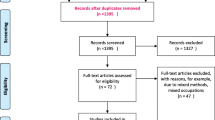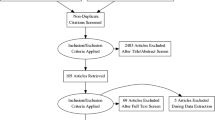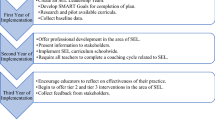Abstract
The ascendance of the recovery movement in mental health care has led to the development and implementation of educational curricula for mental health providers to assist in mental health care system transformation efforts. The Medical College of Georgia (MCG) partnered with the Georgia State Department of Human Resources (DHR) to develop, implement, and evaluate such an educational curriculum for providers within an academic medical institution. This effort, entitled Project GREAT, led to the creation of a curriculum based on the SAMHSA-defined (2006) critical components of recovery. As an initial evaluation of educational curriculum effectiveness, the authors examined effects of the training program on recovery-based knowledge and recovery-consistent attitudes. We also compared MCG provider knowledge and attitudes to those of a similar group of providers at a neighboring medical institution who did not receive the intervention and training. Findings generally supported the effectiveness of the intervention in increasing providers’ knowledge of recovery and a shift in recovery-supporting attitudes.
Similar content being viewed by others
References
Anthony, W. A. (1993). Recovery from mental illness: The guiding vision of the mental health service system in the 1990s. Psychosocial Rehabilitation Journal, 16, 11–23.
Bedregal, L. E., O’Connell, M., & Davidson, L. (2006). The recovery knowledge inventory: Assessment of mental health staff knowledge and attitudes about recovery. Psychiatric Rehabilitation Journal, 30, 96–103.
Cook, J. A., Jonikas, J. A., & Razzano, L. (1995). A randomized evaluation of consumer versus nonconsumer training of state mental health service practitioners. Community Mental Health Journal, 31, 229–238.
Corrigan, P., Markowitz, F. E., Watson, A., Rowan, D., & Kubiak, M. A. (2003). An attribution model of public discrimination towards persons with mental illness. Journal of Health and Social Behavior, 44, 162–179.
Corrigan, P. W., River, L. P., Lundin, R. K., Penn, D. L., Uphoff-Wasowski, K., Campion, J., et al. (2001). Three strategies for changing attributions about severe mental illness. Schizophrenia Bulletin, 27, 187–195.
Corrigan, P. W., Watson, A. C., Warpinski, A. C., & Gracia, G. (2004). Implications of educating the public on mental illness, violence, and stigma. Psychiatric Services, 55, 577–580.
Goldstein, A. P., & Kanfer, F. H. (1979). Maximizing treatment gains: Transfer enhancement in psychotherapy. Oxford, England: Academic Press.
Grol, R., & Grimshaw, J. (2003). From best evidence to best practice: Effective implementation of change in patients’ care. Lancet, 362, 1225–1230.
Peebles, S. A., Mabe, P. A., Davidson, L., Fricks, L., Buckley, P. F., & Fenley, G. (2007). Recovery and systems transformation for Schizophrenia. Psychiatric Clinics of North America, 30, 567–583.
President’s New Freedom Commission on Mental Health. (2003). Achieving the promise: Transforming mental health care in America. Rockville, MD: Department of Health and Human Services. Pub. No SMA 03–3832.
Ranz, J. M., & Mancini, A. D. (2008). Public psychiatrists’ reports of their own recovery-oriented practices. Psychiatric Services, 59, 100–104.
Stuart, G. W., Tondora, J., & Hoge, M. A. (2004). Evidence-based teaching practice: Implications for behavioral health. Administration and Policy In Mental Health, 32, 107–130.
Substance Abuse and Mental Health Services Administration. (2006). National consensus statement on mental health recovery. Rockville, MD: US Department of Health and Human Services. Accessed online 20 Dec 2006. http://download.ncadi.samhsa.gov/ken/pdf/SMA05-4129/trifold.pdf.
Torry, W. C., Rapp, C. A., Tosh, L. V., McNabb, C. R. A., & Ralph, R. O. (2005). Recovery principles and evidence-based practice: Essential ingredients of service improvement. Community Mental Health Journal, 41, 91–100.
Wood, A. L., & Wahl, O. F. (2006). Evaluating the effectiveness of consumer-provided mental health recovery education presentation. Psychiatric Rehabilitation Journal, 30, 46–52.
Author information
Authors and Affiliations
Corresponding author
Rights and permissions
About this article
Cite this article
Peebles, S.A., Mabe, P.A., Fenley, G. et al. Immersing Practitioners in the Recovery Model: An Educational Program Evaluation. Community Ment Health J 45, 239–245 (2009). https://doi.org/10.1007/s10597-009-9212-9
Received:
Accepted:
Published:
Issue Date:
DOI: https://doi.org/10.1007/s10597-009-9212-9




